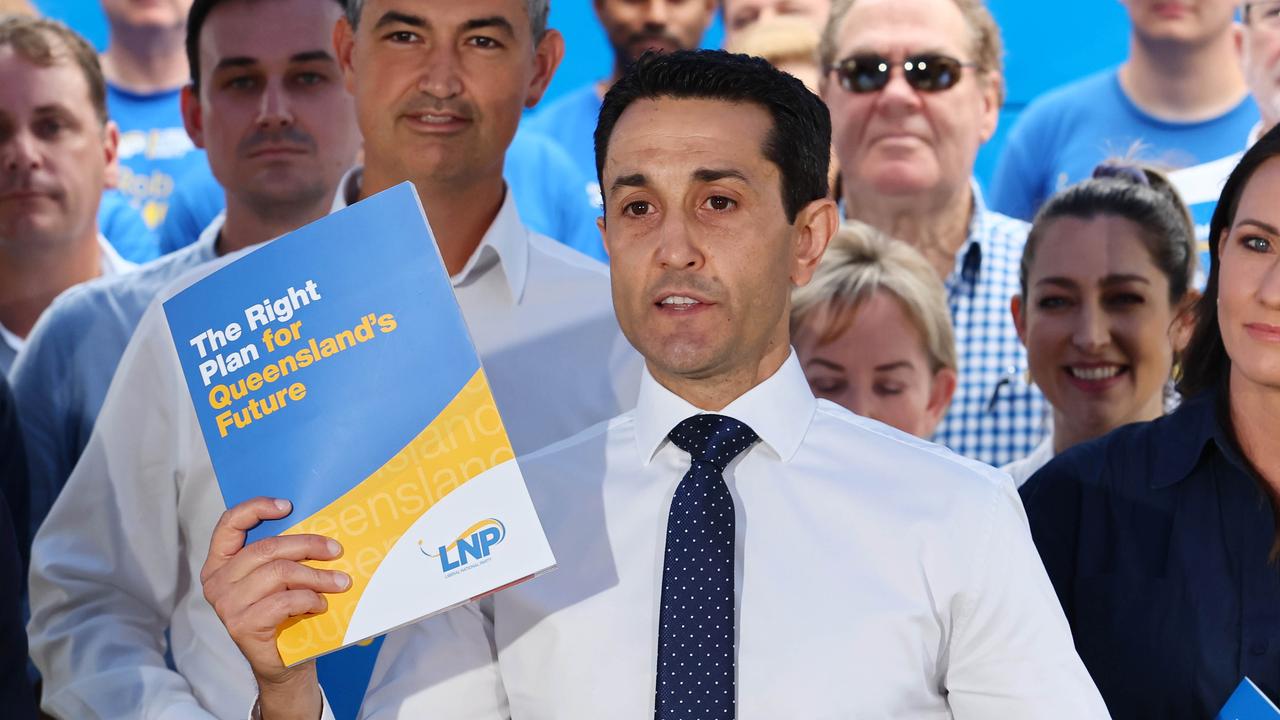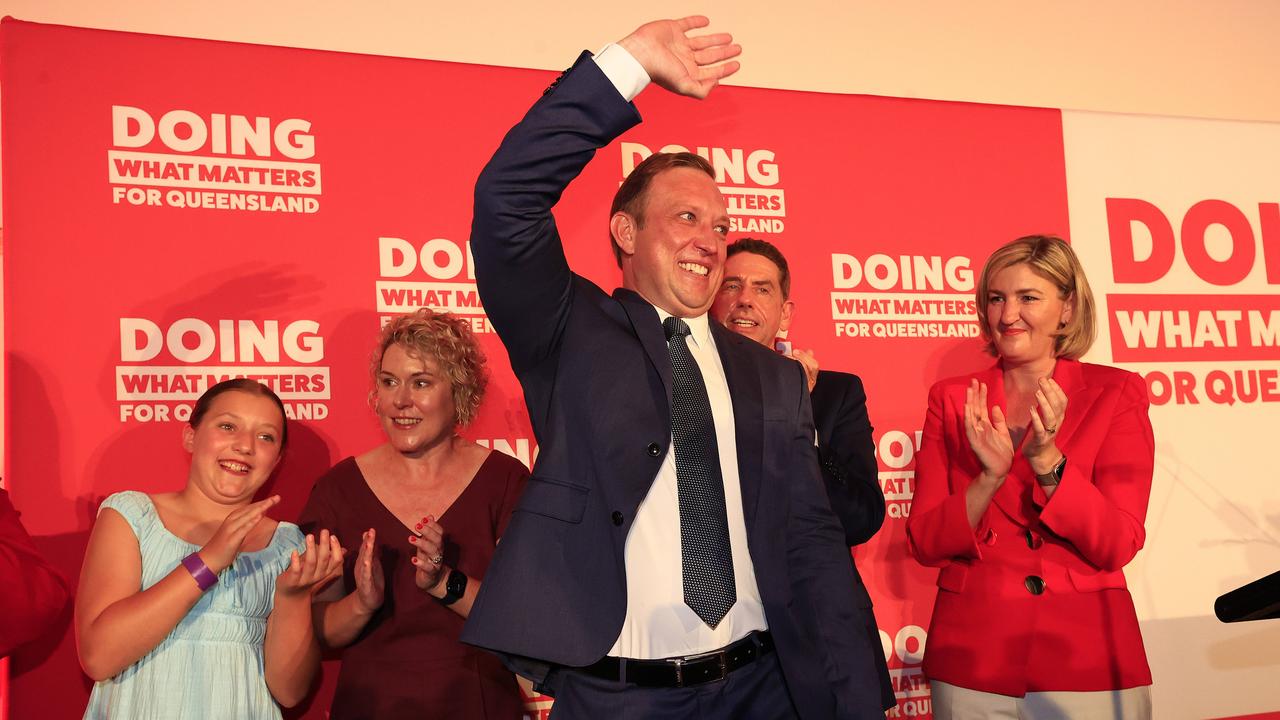‘Appalled’: Labor’s free lunch plan falls flat with principals
Education leaders say they are “appalled” by Labor’s plan to spend $1.4bn on free school lunches, questioning the state’s priorities and casting doubt on whether the initiative is even possible.
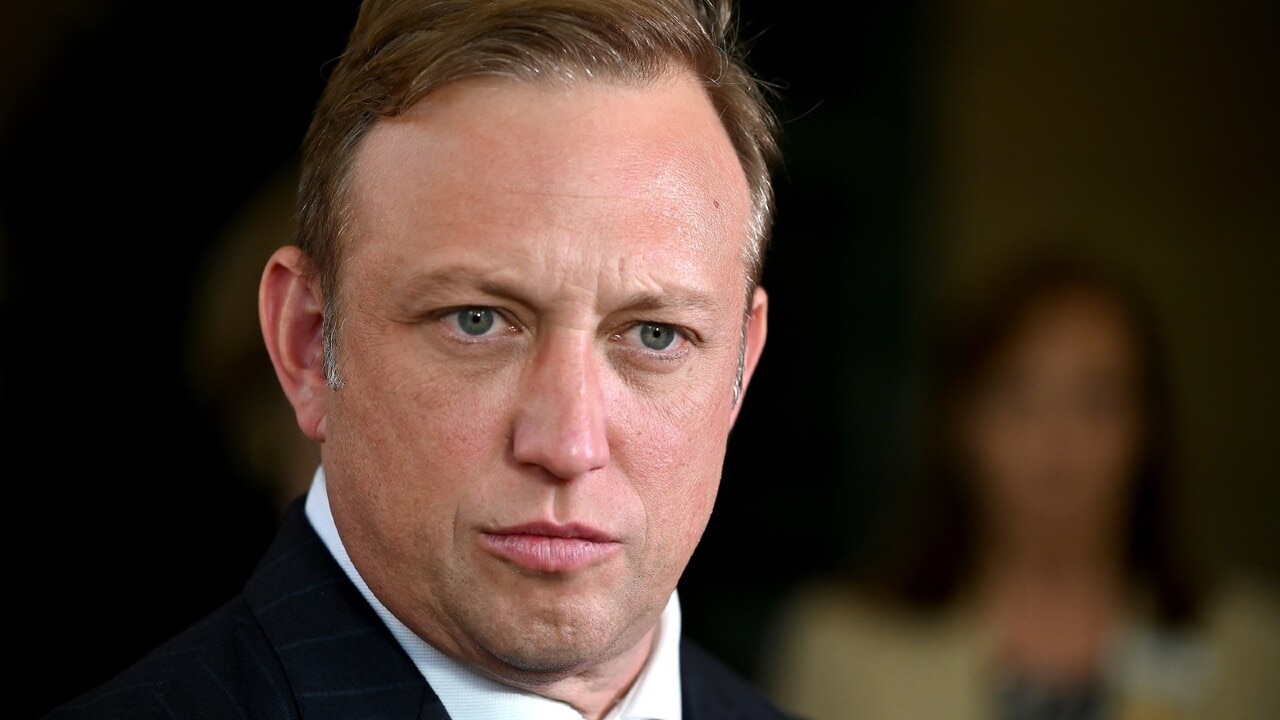
QLD News
Don't miss out on the headlines from QLD News. Followed categories will be added to My News.
Education leaders say they are “appalled” by Labor’s plan to spend $1.4bn on free school lunches, questioning the state’s priorities and casting doubt on whether the initiative is even possible.
Their criticism echoes that of senior Labor ministers Grace Grace and now-education Minister Di Farmer who previously rubbished a similar proposal by the Greens in 2021, at the time describing it as “simply irresponsible” and “trying to solve a problem that does not exist”.
Premier Steven Miles on Sunday announced a re-elected Labor government would splash $1.4bn over four years to ensure every Queensland child attending a state primary school had access to a free lunch each day, with plans to start the initiative in Term 1, 2025.
Opposition Leader David Crisafulli said he would not introduce a similar program if elected, saying he was “very strongly” not committing to it.
Members of the Queensland Associations of State School Principals were “appalled” by the announcement, following feedback from members on Sunday questioning the policy.
QASSP president Pat Murphy said he believed the government’s “priorities are wrong” – referring to stalled negotiations over a new School Resourcing Standard deal dictating how much government funding state and private schools receive.
State schools are significantly underfunded compared to the levels recommended in the 2011 Gonski Review.
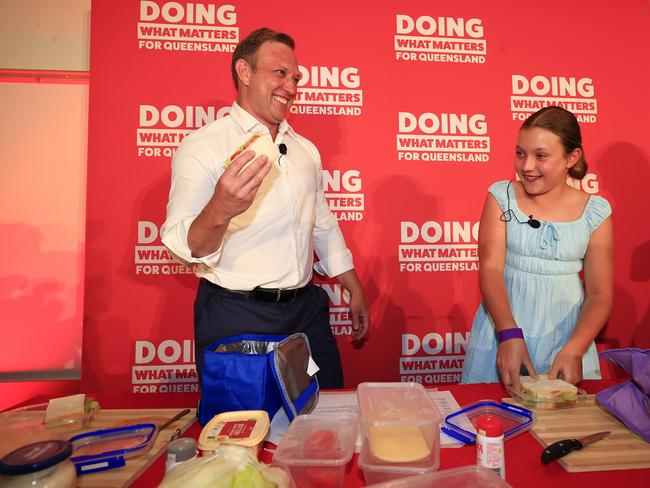
State schools are significantly underfunded compared to the levels recommended in the 2011 Gonski Review.
“We support kids coming to school with a nutritious lunch – it is important for every student,” Mr Murphy said.
“But $1.4bn is more than the total grants given to all Queensland state primary and high schools in a year … and we haven’t seen an increase in our school grants.
“Queensland as a state has been arguing with the Federal Government for months over School Resourcing Standard negotiations and saying that we don’t have the money [to increase the state’s contribution to the deal], but then we suddenly find this money.
“It is exceptionally disappointing.”
Mr Murphy said implementing the policy would be incredibly difficult logistical exercise, particularly in regional areas.
“We’re very concerned about the viability of this policy in rural and remote schools, for example, remote schools that don’t have tuckshops as it is,” he said.
“I’ll use Homestead State School [more than 300km west of Airlie Beach] as another example – there is no shop in Homestead, so nowhere locally for that school to access daily necessities.
“So they will either have to employ someone to organise and implement this free lunches policy for their very small number of students, or the burden will fall on the principal to do it all.”
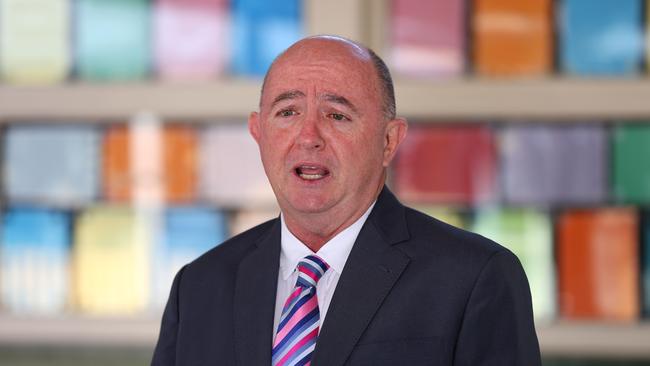
An LNP-run state government would not adopt the policy.
“What the government’s proposing is adopting Green’s policy, which would run into the billions, rather than focus on the needy by working with those not-for-profit groups who do a great job in this space,” Mr Crisafulli said.
Deputy LNP leader Jarrod Bleijie also rubbished the free lunch pitch, questioning how much taxes would have to increase to cover the $1.4bn spend.
“Because he makes a sandwich on TikTok he’s going to run cafes in schools across Queensland,” he said.
Queensland Association of School Tuckshops chief executive Christine Ogden welcomed the announcement, saying QAST had been campaigning on the issue for two decades, saying tuckshops should handle the rollout.
“There is no distinct plan at this stage and we have no idea about logistics, but if you already have a food service establishment in a school, then it makes sense to use it … it would be crazy to try to invent another model,” she said.
“Quite a few tuckshops have been refurbished in the past 18 months thanks to extra state funding, and many are well-resourced now, so we are best-placed to play a key role.
“There is a lot of evidence now around well-fed children showing better learning, behaviour, and lesser absenteeism.”
Ms Ogden conceded that parts of the state’s tuckshop network would need extra funding to pull it off.
“Of course there are some schools that don’t have a tuckshop … so it cannot be a one-size-fits-all approach,” she said.
“We would need to be well-supported by the government, volunteers are few and far between, that is just a fact of life.
“So if we need to pay for labour in certain areas, then that pricing needs to be taken into account, and we’re certainly in a position to advise on that.”
Teachers’ Professional Association of Queensland president Scott Stanford said the proposal was “a good start”, saying it was already well-known that some school staff supply food to some students out of their own pockets.
However, Mr Stanford was also left with questions.
“If we’re going to fund a bigger bureaucracy within schools to deliver this, that goes against what we believe, we want to see the level of bureaucracy in schools become smaller and put the teachers and principals back in charge,” he said.
“But we’re also short of so many teachers, so we need to get serious about funding them.
“Another big concern is that the teachers’ enterprise bargaining agreement needs to be renegotiated next year, and teachers will want better conditions, so if the state government says they’ve got no money for that, then this is going to be an issue moving forward.”
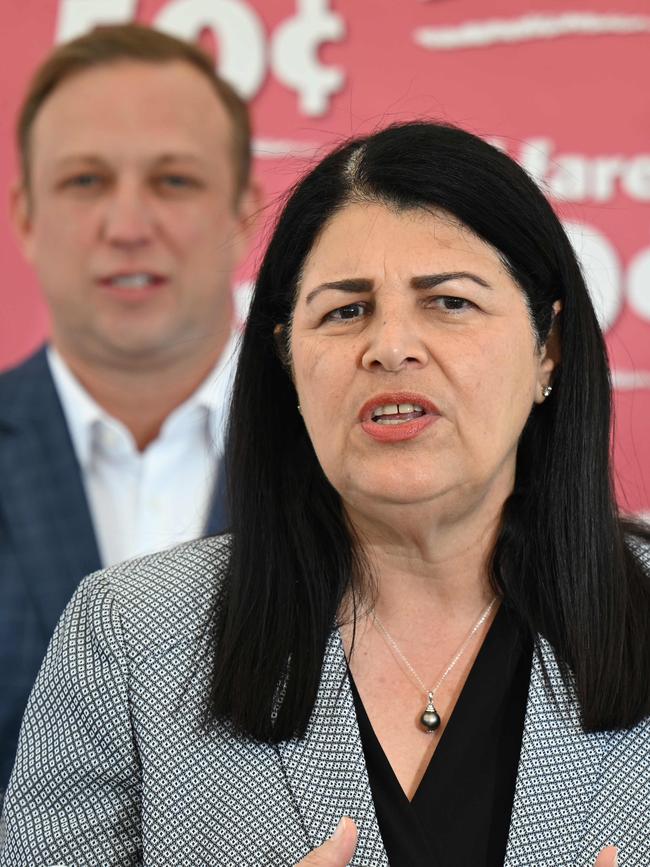
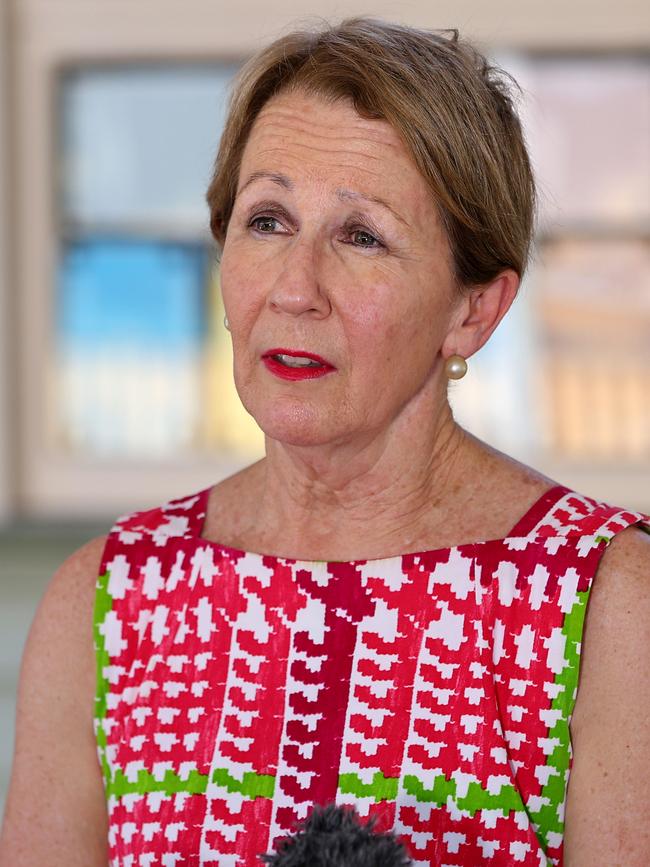
Queensland Teachers Union president Leah Olssen welcomed the Premier’s commitment, but said the other issues in the state’s education sector deserved “equally urgent and meaningful attention”.
“The key takeaway from this election promise is that $1.4 billion dollars has been costed and earmarked to improve student wellbeing in our primary state schools,” she said.
“QTU members know students eating breakfast and lunch learn and behave far better than those who have gone without.
“Right now, all Queensland state schools are fighting for full federal funding as seen in the private system, to deliver quality education.
“Federal funding inequity is a significant contributor to the key issues affecting state schools like the teacher shortage crisis and rising occupational violence.”
P &Cs Queensland declined to comment, saying it wanted to seek more policy details from Labor before commenting.
Health & Wellbeing Queensland also declined, citing the government being in caretaker mode with the ongoing election campaign.
The cost-of-living move would save parents and caregivers an estimated $1600 per child each year, sparking significant household budget and time savings.
Under the promise a re-elected Labor government would provide a free healthy lunch to every state school student between Prep and Year 6 from Term 1, 2025.
It means more than 320,000 children would have access to a free meal each day, in a policy set to cost $1.4bn across four years.
Mr Miles unveiled his most significant re-election pitch yet to a crowd of the party faithful at Queensland Labor’s campaign launch on Sunday — a day before voters begin heading to the polls.
He confirmed funding modelling was based on each lunch costing $8.
With roughly 200 days in the school calendar year, if all students decided to take up the free lunch every school day, the program would cost more than $2bn.
Labor’s free school lunch promise came on the same day the Greens were due to announce a policy of providing free school breakfast and lunch to all state school students.
The minor party, which has two MPs in state parliament, also took a universal school meals policy to the 2020 election, with their 2024 platform also offering a new grants program for community gardens in schools.
Mr Miles on Sunday denied stripping the policy from the Greens after the party in 2021 pushed for a free lunch program at all state primary schools.
Senior ministers Grace Grace and now-education Minister Di Farmer at the time rubbished the Greens proposal, saying it was unnecessary and would not address root causes of hunger and socio-economic inequality.
“Basically, we are trying to solve a problem that does not exist but that will cost $1.6bn,” Ms Grace said at the time.
Ms Farmer had said the “typical” Greens policy was “simply irresponsible” by suggesting that one single thing would fix the huge issue of children going hungry.
Asked on Sunday what the difference was between the 2021 Greens policy and now, Mr Miles responded: “I’m the Premier now.”
“I don’t spend too much time looking at the Greens policies,” he said
“This is school lunches because it’s something that I’m passionate about, it’s something I’ve been talking about for the entire 10 months.”
More Coverage
Originally published as ‘Appalled’: Labor’s free lunch plan falls flat with principals




